The Military Planks of Capital Accumulation: An Interview with Neil Smith
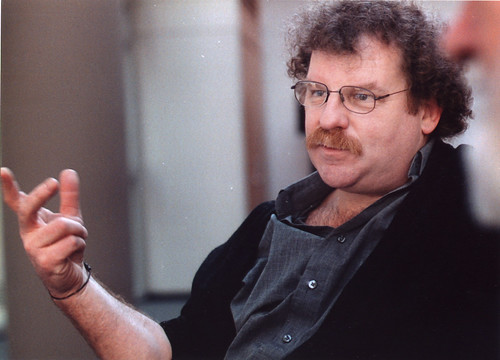
Back in May, I invited Neil Smith to participate in Postopolis! But, at the time he was heading to Berlin and unfortunately could not join our crazy 5-day conversation at the Storefront.
For those who aren’t familiar, Neil is a seriously bad-ass geographer who has done some of the most important work looking at the historical landscapes of uneven capitalist development in the West. His theoretical research on the complex social dioramas and gentrification patterns of the city has been largely influential, and has major resonance today given the current geopolitical climate. While teaching anthropology at CUNY he is also the Director of the Center for Place, Culture and Politics, an academic forum that invites leading thinkers to deconstruct globalization’s contemporary modalities of space production by considering a wide range of social urban issues. He has won numerous book awards, received distinguished fellowships, and is one of the highest regarded professors in the field.
So, we reconnected upon his return and since then I’ve picked his brain over a brief email exchange on his thoughts about the manifestation of the military’s role in today’s global economy. Let me say, that his comments on the inevitable destruction of cities in order for the cogs of the capitalist real estate machine to turn are particularly poignant right now. Given how the world is experiencing and responding (or not) to so much destruction and simultaneous reconstruction that is brought on by perpetual conflict and a volatile increase in natural devastation, the implications of the nature of capital and the city are endlessly confounding and need to be articulated like this more often. So, with that – I’d like to thank Neil for taking the time and giving Subtopia a brief education on this angle of a pervasive military urbanism.
[What follows is the transcript of an email exchange between Neil Smith and myself just a couple of week ago.]
[Bryan Finoki] In essence, Subtopia is about the relationship between the military and cities. There is, of course, an ancient history there, but today the institution of the military seems to engage – or even, constitute – cities on many different levels. This is evident all over, from places like London that boasts having perhaps the single largest and most dense urban surveillance network in all of the world, to Tijuana where the military and police regularly collide not only with each other but with highly armed cartels and pervasive gang warfare; to New York City’s armored skyscrapers and futurist fortress urbanism; to Sao Paulo’s interwoven paramilitary groups that practically run the sprawling capital from prison; to Baghdad that is informally governed by probably more sectarian militias than we can even count; and all the way back to New Orleans post-Katrina when the private military company Blackwater stormed the area in a feral sweep of martial law long before FEMA had even hit the ground.
These are just to name a few, but there is a precarious relationship these days between cities and the military and I was hoping you could reflect on the nature of it a bit first to get us started.
[Neil Smith] Historically, wars and battles were often won and lost with the capture or sacking of cities. More than anything, this reflected the political and cultural power of cities in pre-capitalist societies. The rise of the national state, as the scale at which competing territorial economies were organized, partly deprived cities of some of this social power and the wars of the last two centuries were – in the most general sense – less focused on cities. But that is beginning to change again.
Since the 1970s, we have witnessed a significant rescaling of social activities. National economies are comparatively weaker, for example, in the face of globalized economic relationships, but so too has the urban scale been strengthened as cities have become the fortified nodes of the global political economy. Cities were never out of the crosshairs of war, but in recent decades the re-empowerment of cities has made them broadly more visible as "places of military interest." This was a shift that was well underway before September 11, 2001 – a day, which in and of itself did not (as so many seem to suggest) change the world. The response to that day, by contrast, did change the world in various ways, among them the intensified securitization of cities. It is a shift paralleled by the rapid class polarization between rich and poor, and the new military interest in cities expresses not just the fact that cities are military targets but that they are also concentrations of extraordinary wealth that the state defends.
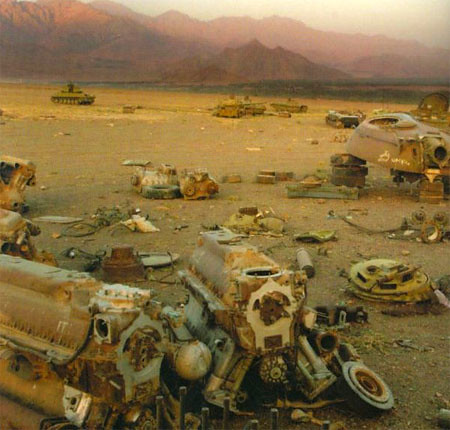
[Image: The cover image for Neil Smith's book The Endgame of Globalization published by Routledge in 2004. Image by CORBIS.]
[Bryan Finoki] In your book The Endgame of Globalization you deconstruct the inherent contradictions of the American ideal and how they have translated through neoliberalism, which has largely prevented the success of creating a truly dominant global system. While I haven’t read the book entirely yet myself, you cite the current occupation of Iraq as the contemporary and penultimate folly in this pattern of chronic self-contradictions that have evolved the American project as both an imperialist and democratic one, and so my question is: what are the systemic mechanisms today heading deeper into the 21st century that defines the city as an engine for this type of perpetually flawed neoliberal agenda?
[Neil Smith] Endgame makes the argument that it's a specifically liberal imprematur that is picked up and remade in the fashion of neoliberalism. It does so through a U.S. lens but of course neoliberalism has many identities. The so-called democracy of the U.S. imperial project is a democracy of capitalists on behalf of their own interests which might look democratic in comparison to feudalism, and it's exactly that kind of democracy that the U.S. empire threatens the rest of the world with. I'd like to think we're beyond that – or, have to get beyond that.
As regards to the question about cities, they have become the engines of neoliberal economic production. This was not true in the Keynesian period. Then, cities in the advanced capitalist world were cogs in subnational regional economies, supplying labor power for the larger national economy. Today, city economies, polities and cultural regimens compete among each other – almost regardless of national borders – in the global economy. The mechanisms? Crucially, cities no longer function primarily as the reservoirs of labour power (the social reproduction of a work force) for national economies. Labour power can now be imported across national borders. Rather, as part of this global rescaling, cities (more accurately ‘city regions’) have become the centres of production for the global economy. Sloughing off their social service functions – medical, unemployment, welfare, education – was the task of roll-back neoliberalism which abolished all sorts of state support for social reproduction; the new roll-out neoliberalism establishes cities as the crucibles of a new entrepreneurialism – in germ, the so-called ‘creative city.’
[Bryan Finoki] In an essay I read in a recent issue of Volume magazine, Andrew Herscher talks about the “World Bank City” as a new form of urbanism that uses the context of post-conflict reconstruction to lend money and institute “conditionlaities” of economic neoliberalism in nations desperate to rebuild. With these arrangements comes a whole host of market “liberalization effects,” as he calls them, like the downsizing of municipal governments, the privatization of public services and utilities, the erosion of fair labor practice and the escalation of informal urban economies. He concludes by saying: “To speak of the World Bank City as an object of ‘reconstruction,’ then is imprecise; more accurately, it is an object of redestruction, a place where the physical violence of war is transmuted into the structural violence of neoliberal globalization.”
First, what is your take on this concept of a “World Bank City,” and how do you gage the economy of military occupation in its complicity with the kinds of post-conflict capital investment we see in such places like East Timor, Bosnia, Herzegovina, and Kosovo?
[Neil Smith] I've always thought the language of the "neoliberal city" worked quite well, but I think this language of the "World Bank City" works, too. My own argument in the journal Antipode, that a new globalism brings a new urbanism, fits this broad picture, as well. When I think of the economy of urban occupation, I think mostly of Iraq, but these other examples are equally useful.
A central part of the neoliberal city is that the city itself becomes a vehicle of accumulation – city building becomes an accumulation strategy in a far more intense way than at any previous moment. Militarization, massive reconstructive reinvestment and a supposed humanitarian agenda (bombs dropped alongside care packages on Kabul) all feed into this strategy of city building. The charm of capitalism, as Marx and Schumpeter both understood very well, is the necessity of creative destruction – an insight that the theory of uneven development mobilizes. It is necessary to destroy capital in order to create the opportunity. Disinvestment can be gradual or cataclysmic – in many cities gradual disinvestment creates the opportunity for gentrification; military destruction speeds the process up. While the Iraq war is all about the "endgame of globalization," part of this equation is the massive state funding of Halliburton and Blackwater and other multinationals to orchestrate a reconstruction. That this reconstruction has proven an utter failure is of only secondary concern – indeed, as long as the state keeps funding accumulation through multi-billion dollar contracts to these and other corporations, failure simply establishes the conditions for further investment.
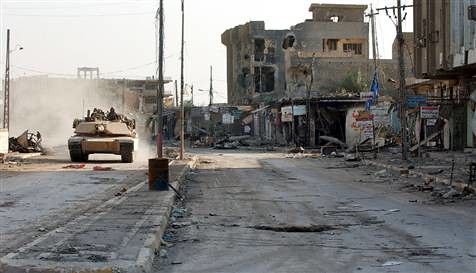
[Image: Coalition Forces patrol the ruins of Fallujah, Iraq in 2004. Photo by Marco Di Lauro / Getty Images via MSNBC's article: Surveying the ruins, making plans for Fallujah, Nov. 15 2004.]
[Bryan Finoki] How would you distinguish the difference between militarism and the militarization of space? Geographer Colin Flint said at the recent AAG meeting in San Francisco, something to the effect that “militarism” is an ideology while “militarization” is an internalization of those ideals. I’m wondering if you concur with this, and how you see the American ideals as having been defined historically perhaps by this sense of militarism, and how that has or has not played out in American, or even perhaps, global urban development?
Taking this question even a step further: If we think specifically about constructing a spatial narrative of globalization, or, telling its history strictly in terms of the spatial forms it has engendered or from which globalization as a system has emerged (i.e., cities, suburbs, naval ships and trade routes, military bases, corporate dominions, prison space, hotel chains, etc.), I would be interested to hear how you trace the urban morphology of globalization in a specific conjunction with militarization? How has the role of militarism or the militarization of space served the production of the type of uneven global development you have written about so extensively?
[Neil Smith] I seem to be anticipating your questions as I go! I would be less inclined to divide militarism as an ideal from the actual experience of militarization. To do so invites the sense, as your question suggests, that militarization is about putting ideals or even ideas into practice. This to me privileges the ideal and/or idea and represents an idealist explanation. The military for me represents forms of forceful power and this is a power that is always used on behalf of some social interests rather than others. The key for me is to 'follow the interests.' Who wins from militarism at home or militarization abroad, and who loses?
I think what we are seeing today is a shift from a geopolitical calculus dominating global power to a geoeconomic calculus. This is very much expressed in the global ambitions of Woodrow Wilson and Franklin Roosevelt, as well as with the present Bush. The contradiction amidst all of this is that military force is generally deployed in order to pacify the world such that this geoeconomic power can work. That is explicitly the U.S./U.K. goal for the Middle East, but of course pacification is not easy to extract from war – hence the debacle in Iraq. Put differently, geopolitics is tactical whereas the geoeconomic vision of global economic control is strategic, but sometimes the tactics get in the way of the strategy.
What does this mean for cities? The militarization of cities is, for ruling classes of whatever ilk, at best a necessary evil. It enforces some interests over others. The real global cities today, I would argue, are not the Londons, New Yorks, and Parises of the world, so much as Mumbai, Shanghai, Mexico City, and so forth – the production hubs for the global economy. This requires social control and whether such control is forcibly maintained by police forces or by the military – whether it takes a directly brutal form or operates largely by dominance and threat – depends on many things. But China's cities today seem to me to be militarized very much in support of capital accumulation. The militarization of New York since the Giuliani era may seem softer but it is very much aimed at pacifying the city for sake of attracting business and tourists even as the lurching economy creates more and more poor people, even homeless people, who have to be "pacified."
The crucial question to recognize is the extent to which urban building is a crucial plank of capital accumulation today. The spatial dimensions of military power are in the end tied to economic interests. The proliferation of U.S. military bases around the world is precisely about pacifying all regions of the world to enable and facilitate massive capital investment. How better to do so that to send the city re-builders in with the city destroyers. Turnover time is reduced to almost zero. I'm not suggesting that specific wars, invasions, or urban military projects are organized with all of this fully in mind; rather, a certain military intent and economic logic finds themselves working hand in hand.
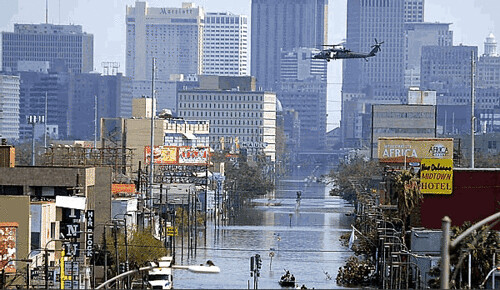
[Image: A helicopter owned by the private military contractor firm Blackwater swoops over the flooded and chaotic ruins of New Orleans just after hurricane Katrina hit in 2005. Photo via Too Beautiful.]
[Bryan Finoki] Right. And then we can think about those connections specifically, say, in the context of the GWOT (“Global War On Terror”), and the kinds of similar urban development both in Afghanistan as well as perhaps even Chicago or New York City. What are the growth patterns, or economic ties between militarization and gentrification that are marked similarly across the world? Not to rehash or harp on the earlier question around “World Bank Cities,” but what are the parallels between the reconstruction efforts in Kabul and New Orleans, for example, two utterly different cities (or, are they?)? What is the underlying urban geopolitical principle?
[Neil Smith] Let me just focus on New Orleans since I think much of this has already been covered. There, where the destruction was initiated (but not caused) by a hurricane and subsequent events. I say, "not caused" because had the levees never been built and the wetlands tarred over, the level of physical and economic destruction would have been far less. Had the society that built and populated the city been more egalitarian in terms of race and class and age, and had there been an evacuation strategy that wasn't based on the private property of car ownership and need to protect landed property, the death toll would have been minimal instead of 1400 people. That Blackwater and Halliburton were so quickly into New Orleans, as we now know, alongside – and in some cases in charge of the military (National Guard) – simply confirms the breadth of the connections between militarization and economic opportunity. The reconstruction of New Orleans and the Gulf Coast is being used, in fact, as an opportunity to reconstruct a social geography without many of the working class poor who had been ghettoized there in the past. Gentrification, militarization and capital accumulation come together in near-perfect unison, and nature gets the blame.



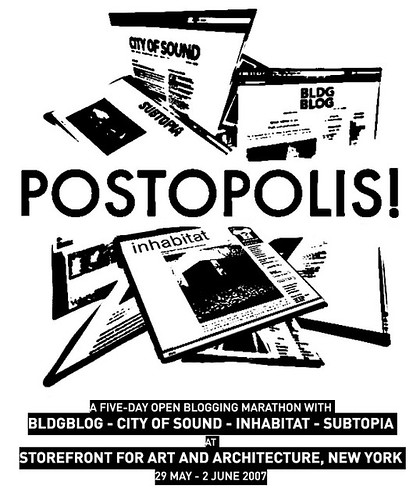



3 Comments:
nice scoop bryan, its good not to lose sight of the intimate, intricate and mutually constitutive linkages between the militarization of urban space on the one hand and elite imperatives of accumulation on the other (even if they often exist in distinct but parallel spheres of policy, decision-making and even ideology).
From what i understand, aside from molding an urban topography infinitively more fragmented and volatile, neoliberal globalization in all its imperialist configurations has ushered in a situation where the destruction and reconstruction (as well as surveillance) of cities is itself a lucrative accumulative strategy.
What is interesting is that the twin imperatives of accumulation and control seem to be aligning more closely. I think traditionally the dynamics of accumulation have often undermined elite and state mechanisms of control - mass concentration of workers in cities, even more recently slumification as a result of expanded exploitation of third world rural resources etc. To a degree rational urban planning, especially in its Corbuserian variety attempted to diffuse these contradictions through segregative spatial design.
What seems interesting today is that urban practices of social control through a massive militarization/securitization of cities and via a military-industrial/military-theoretical, complex and security industry has been turned into a profitable enterprise in its own right.
I am still reading and trying to get my head around this, and which aspects of it represent something new, even unprecedented (if not paradigmatically different), but it seems to be one of the fundamental characteristics of the new military urbanism.
great interview!
N
Wow,
I for one although aware of similarities (mostly from your blog) between gentrification and militarization of space/reconstruction-never would have thought to put Kabul and New Orleans together, as fitting within the same paradigmatic structures.
Very interesting
Thanks for your comments - I wish I had more time to respond, I promise I will try to do so in the future!
Post a Comment
<< Home